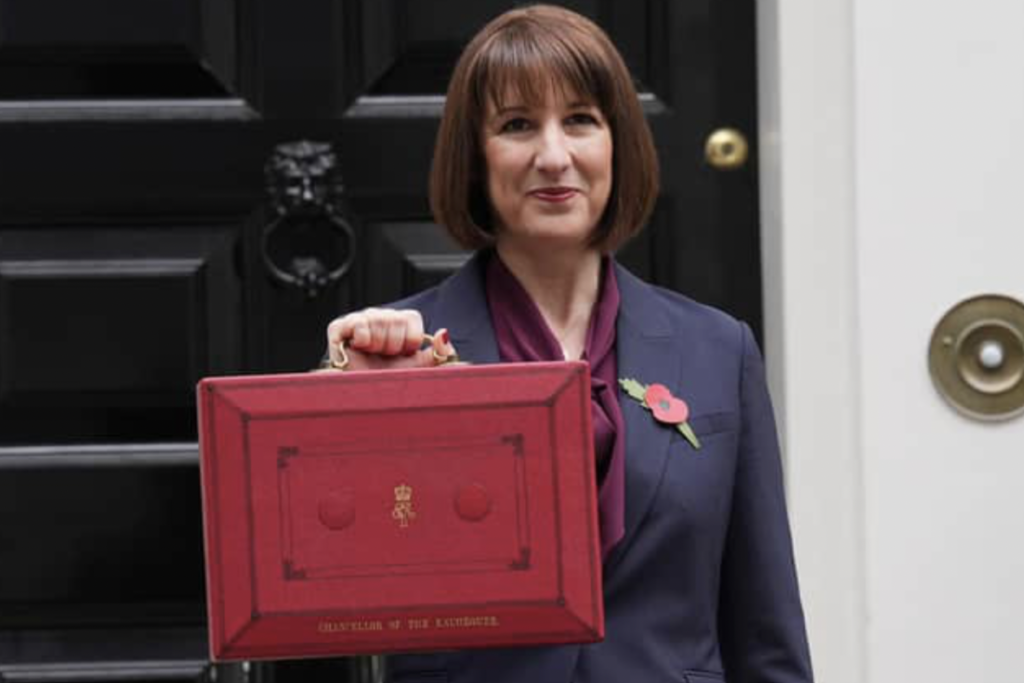In today’s Spring Statement Chancellor Rachel Reeves confirmed future pension reforms will help drive economic growth, but there were no further details revealed.
In her statement to the House of Commons Reeves confirmed that the Office for Budgetary Responsibility (OBR) had hailed its growth forecast for the year to 1 per cent, however it has uprated future growth forecast for the rest of this Parliament.
Pension reforms, which will drive consolidation in the sector and encourage DC schemes to invest in productive finances are understood to be one element to achieving this future growth.
The statement contained no further details on progress of these plans, but the upcoming Pension Bill is set to make changes to the wider DC landscape.
Reeves did not announce any further tax changes, but the relatively narrow financial headroom, and ongoing economic uncertainty, has raised the prospect of more significant tax changes in the Autumn Budget.
The first draft of the Pension Schemes Bill is expected within weeks. This was previewed at the King’s Speech and will contain a number of significant developments designed to address pressing issues facing savers and the industry, including the Value for Money framework and small pots issues.
The Pensions and Lifetime Savings Association director of policy and advocacy Zoe Alexander says: “As was widely expected, the Spring Statement did not focus on pensions policy. We know the focus will return to pensions with the report of the Pensions Investment Review next month, and a Pension Schemes Bill due to be introduced soon.
“The growth reforms highlighted in the Chancellor’s speech, such as planning reform, the National Wealth Fund, infrastructure and technology spending are all essential for creating a positive environment for the economy, with follow through benefits for pension fund investment returns.”
Standard Life retirement savings director Mike Ambery says: “The big-ticket initiative is the Chancellor’s drive for scale and a plan to consolidate the fragmented DC pension market into fewer, larger schemes to drive efficiencies and unlock investment opportunities both here in the UK and internationally.
“Another significant development is a plan to introduce default decumulation pathways in the occupation pensions world. We’re 10 years on from the pension freedoms and in many respects this plan recognises that complexity of the decisions facing those at retirement and aims to provide an option that will deliver good outcomes for those who would prefer a ready-made solution.
“A scheme to address the issues of small pots is also in the works which recognises the proliferation we’ve seen since the introduction of auto-enrolment with the introduction of default consolidators. Despite pensions barely featuring in today’s statement, both parliament and the industry will be kept busy in the weeks ahead as this legislation progresses.”
Aegon pensions director Steven Cameron adds that further details about DC pension changes, particularly in regards to driving investment into productive finance should be included in the Pensions Investment Review, due to report next month.
He adds: “We know further changes are coming in this summer’s Pension Schemes Bill which will include new measures to ensure all pensions offer good value for money and plans to consolidate small pension pots individuals may have left behind when changing employers. Furthermore, we expect new requirements for pension scheme trustees to go further in designing default retirement income strategies for members who do not want to make choices for themselves.”
He adds that given the relatively narrow fiscal headroom the future changes to the State Pension cannot be ruled out, should budgetary pressures worsen. “There is an ongoing review of the State Pension age, and government finances may necessitate further or faster increases. An increase to age 68 is already scheduled starting from 2044.
“We also can’t ignore the State Pension ‘triple lock,’ which has proven costly and unpredictable in recent years. While the government is currently committed to maintaining it, the formula might be adapted, for example introducing a ‘smoothing mechanism’.”
Speaking about the wider Spring Statement Ambery adds: “The Chancellor has remained true to her principle of sticking to one fiscal event per year and for many, it’s ‘as you were’ following the Spring Statement.
“However, the squeeze on the public purse is clear and it seems the stage is set for a more significant Autumn Budget.
“With formidable spending obligations and a stated commitment to obey its fiscal rules, unless we see a strong summer of economic growth the Government is likely to face a choice between further spending cuts and tax rises. It remains to be seen whether the Government’s pledge not to increase taxes on working people can survive the scale of the fiscal challenge outlined by the OBR.”
The previous Autumn Budget announced plans to include pensions within the inheritance tax net.
The OBR’s forecast also included updates figures for inheritance tax, with this levy now expected to raise an additional £2.44 billion by the end of the decade, in part due to frozen thresholds.
Retirement specialist Just Group director Stephen Lowe says: “Frozen thresholds and rising asset prices have long been increasing the Inheritance Tax haul and from next month the reforms announced at the Autumn Budget will be accelerating this trend.”
